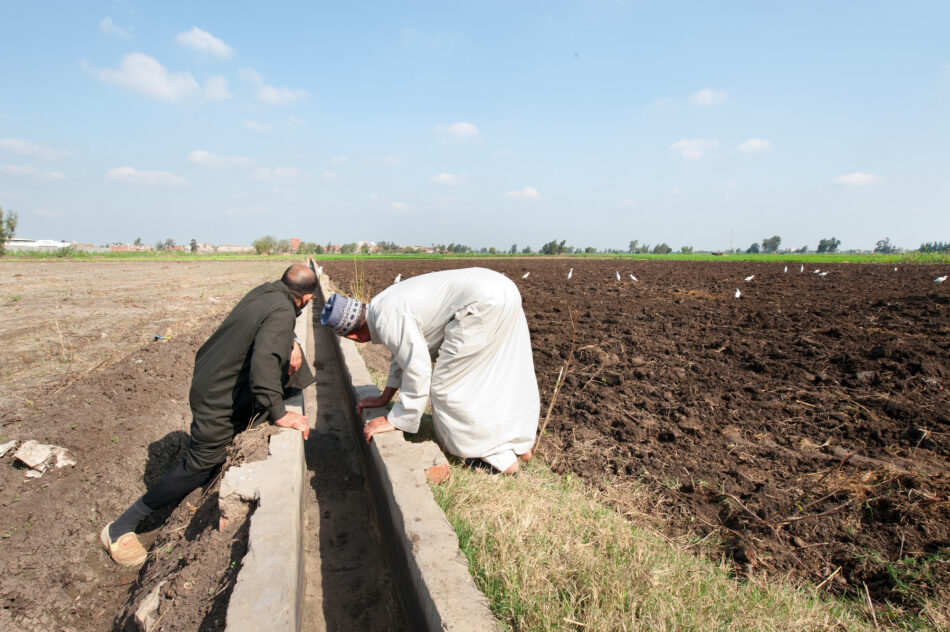By Fayrouz Eldabbagh and Youssef Brouziyne

The International Water Management Institute (IWMI) together with Egypt’s Ministry of Water Resources and Irrigation co-convened a session under the CGIAR Initiative on National Policies and Strategies (NPS) on enhancing policy coherence around water productivity. Economic and social equity under changing climate conditions and global challenges in the food value chains received particular focus.
One of the key highlights of the discussion was the trade-offs between water, land, food, and the economy in relation to the production and consumption of wheat amidst the Russia-Ukraine war. Egypt, one of the world’s biggest wheat importers, has leaned on its domestic harvest in the face of rising international prices. Farmers have been encouraged to cultivate more after the government increased the procurement price of wheat. Egypt also provides heavily subsidized bread to a large majority of its citizens. These measures were significant as wheat is a highly strategic crop, forming around 35% of the calorie intake of Egyptian citizens. As much as subsidies and procurement prices retain food security and social equity measures, they put water availability at risk, putting pressure on the national budget by pushing the state to spend more on wheat and bread.
Participants in the session underscored the importance of considering the economic cost of water since the profitability of crops is based on the price tag of conveying water from the canal to the field. This calculation should also consider the opportunity cost of water, which is the difference between the cost of imported virtual water and the water used to grow crops at home. In the context of water scarcity and heavy subsidies to preserve food security, it was recommended to diversify the economic cost calculation paradigms for comprehensive and sustainable inclusion of water values.
Others added that the economic cost of water needed to be aligned with infrastructural and technological improvement. Egypt’s Ministry of Water Resources and Irrigation is also keen to invest in water infrastructure and water accountability to decrease water loss.
Understanding the local context also matters for vertical policy integration because formulating and implementing regulations and laws must cohere with what is happening on the ground. An important aspect of this is good quality data at the national and local levels to feed into the different economic models. IWMI’s research in Egypt under the CGIAR Initiative on National Policies and Strategies is focused on contributing to demand-driven policy solutions that are coherent and link up with current economic and social protection policies to address food, land, and water challenges.
Acknowledgments
The authors acknowledge the valuable contributions of:
- Rabab Gaber (General Director of the Water Resources Department, Planning Sector at the Ministry of Water Resources and Irrigation),
- Sikandra Kurdi (Country Program Lead at IFPRI Egypt),
- Ahmed Nasr-Allah (Country Director at WorldFish Egypt),
- Abdel-Aziz Ibrahim (Professor Emeritus of Water Resources Economics at the Institute of National Planning),
- Juan Carlos (NPS Coordinator and Research Group Leader on Water Governance and Political Economy (WGPE) at IWMI)
- Alan Nicol (Co-Lead of NPS and Principal Researcher at IWMI)

